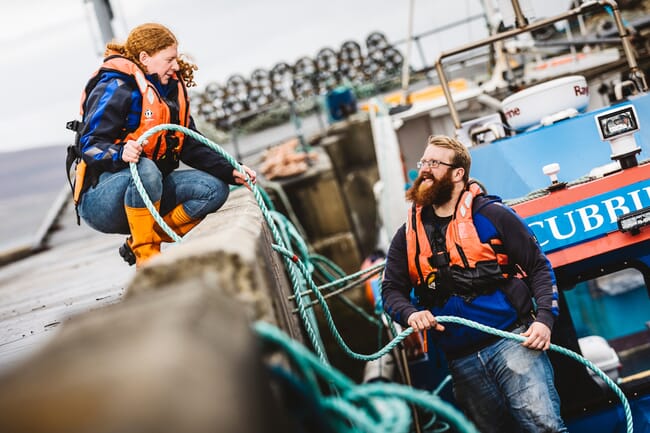
© Scottish Sea Farms
Scottish Sea Farms (SSF) - a producer of Scottish farmed salmon - recently published its gender pay gap report for 2023, in which the advancements made by the company to eliminate pay disparity were highlighted.
Some measures of the company's gender pay gap were adversely affected during its acquisition of Grieg Seafood Shetland, during which SSF added 146 men and 40 women to its workforce. However, the salmon farmer has not only returned to its pre-acquisition position but also made slight advances, aided by ongoing work to benchmark and align pay grades across the integrated team.
The progress report highlights such achievements as an almost 4 percent reduction in women’s mean hourly pay gap, an addition of just over 1 percent more women to the top pay quartile, and almost 30 percent more women receiving bonus pay, compared to previous years.
“The key takeaway from the latest reporting, as our mean average hourly pay shows, is that female colleagues are paid on a par with their male counterparts - or, as with this snapshot, slightly more,” said Scottish Sea Farms Head of human resources Fiona McCann, in a press release from the company.
McCann explains that, whilst there is now no difference in median bonus pay between men and women working for Scottish Sea Farms, men still vastly outnumber women in each pay quartile, including those in which bigger bonuses are often paid, contributing to an increase in gender pay disparity in 2023.
“Salmon farming was seen as a primarily male career for many years. As such we have significantly more men on the team than women, some 82 percent to 18 percent in 2023, impacting on other measures,” she said.
In order to change this, McCann suggests that the best approach would be to employ and retain more women both within the company, and in the wider aquaculture sector.
“Our priority has been, and always will be, to hire the best candidate for the job. We’ve made real progress with 109 women on our team currently in roles ranging from freshwater technician, farm manager and fish vet to environmental scientist, laboratory supervisor and supply chain coordinator - but we’d like to see many more,” she said.
“We’re battling outdated perceptions of the sector as being overly manual and a lack of awareness of the range of careers available in the present day. Overcoming such deeply engrained perceptions won’t happen overnight. We need to be as inventive as we are persistent in our work to attract more women, continually asking ourselves what more we can do and where else we could place ourselves to help raise awareness of the opportunities on offer,” she concluded.




